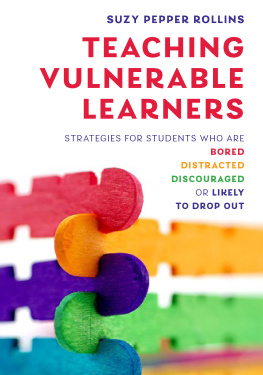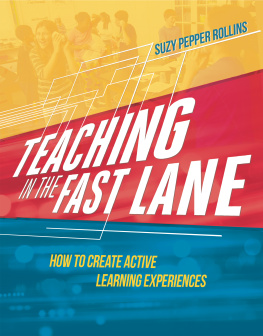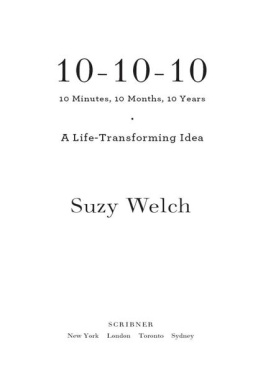Suzy Pepper Rollins - Teaching Vulnerable Learners
Here you can read online Suzy Pepper Rollins - Teaching Vulnerable Learners full text of the book (entire story) in english for free. Download pdf and epub, get meaning, cover and reviews about this ebook. year: 2020, publisher: W. W. Norton & Company, genre: Home and family. Description of the work, (preface) as well as reviews are available. Best literature library LitArk.com created for fans of good reading and offers a wide selection of genres:
Romance novel
Science fiction
Adventure
Detective
Science
History
Home and family
Prose
Art
Politics
Computer
Non-fiction
Religion
Business
Children
Humor
Choose a favorite category and find really read worthwhile books. Enjoy immersion in the world of imagination, feel the emotions of the characters or learn something new for yourself, make an fascinating discovery.
- Book:Teaching Vulnerable Learners
- Author:
- Publisher:W. W. Norton & Company
- Genre:
- Year:2020
- Rating:5 / 5
- Favourites:Add to favourites
- Your mark:
- 100
- 1
- 2
- 3
- 4
- 5
Teaching Vulnerable Learners: summary, description and annotation
We offer to read an annotation, description, summary or preface (depends on what the author of the book "Teaching Vulnerable Learners" wrote himself). If you haven't found the necessary information about the book — write in the comments, we will try to find it.
Teaching Vulnerable Learners — read online for free the complete book (whole text) full work
Below is the text of the book, divided by pages. System saving the place of the last page read, allows you to conveniently read the book "Teaching Vulnerable Learners" online for free, without having to search again every time where you left off. Put a bookmark, and you can go to the page where you finished reading at any time.
Font size:
Interval:
Bookmark:

NORTON BOOKS IN EDUCATION
TEACHING
VULNERABLE
LEARNERS
Strategies for
Students Who Are
Bored,
Distracted,
Discouraged, or
Likely to Drop Out
SUZY PEPPER ROLLINS

This work is intended as a general information resource for teachers and school administrators. Although the author has extensive experience in the subject matter, neither the author nor the publisher can guarantee that any educational approach, strategy or technique that this book describes or proposes will work with every individual student. The author is not a lawyer, and nothing contained in this book should be construed as legal advice.
Any URLs displayed in this book link or refer to websites that existed as of press time. The publisher is not responsible for, and should not be deemed to endorse or recommend, any website other than its own or any content, including any app, that it did not create. The author, also, is not responsible for any third-party material.
Copyright 2020 by Suzy Pepper Rollins
All rights reserved
First Edition
For information about permission to reproduce selections from this book, write to
Permissions, W. W. Norton & Company, Inc., 500 Fifth Avenue, New York, NY 10110
For information about special discounts for bulk purchases, please contact
W. W. Norton Special Sales at specialsales@wwnorton.com or 800-233-4830
Production manager: Katelyn MacKenzie
Library of Congress Cataloging-in-Publication Data
Names: Rollins, Suzy Pepper, author.
Title: Teaching vulnerable learners : strategies for students who are bored, distracted,
discouraged, or likely to drop out / Suzy Pepper Rollins.
Description: First edition. | New York : W.W. Norton & Company, [2020] |
Series: Norton books in education | Includes bibliographical references and index.
Identifiers: LCCN 2019052136 | ISBN 9780393714623 (paperback) | ISBN 9780393714630 (epub)
Subjects: LCSH: Students with social disabilitiesUnited States. |
Students with disabilitiesUnited States. | Academic
achievementUnited States. | Teacher-student relationshipsUnited States.
Classification: LCC LC4091 .R65 2020 | DDC 371.826/94dc23
LC record available at https://lccn.loc.gov/2019052136
W. W. Norton & Company, Inc., 500 Fifth Avenue, New York, N.Y. 10110
www.wwnorton.com
W. W. Norton & Company Ltd., 15 Carlisle Street, London W1D 3BS
For my teachers at North Shore High School
in Houston, Texas, especia lly:
Jean Rose, for teaching me how to think
Jackie Gilbreath, who forced me to be on the debate team
Maisie Temme, who gave me a sense of belo nging
Nothing can ever repay you for the dedication and commitment
you showed to me and every other student who
walked in that building each and every day.
Know that it mattered... and wor ked.
Contents
I n peril, in jeopardy, at risk. These are all synonyms for the word vulnerable , which derives from a Latin word meaning to wound. One can rightfully argue that all students are academically vulnerable at different points in their schooling. The groups discussed here, however, include large numbers of learners who are not reaching their potential in our classrooms. In fact, some are doing heartbreakingly poorly. When we see them in the hallways or in class, they might not appear vulnerable at all; in fact, some might be accumulating suspensions or absences. Or they might not say much at all. But if they continue on this troubling academic path, they may indeed become wounded, in terms of job opportunities, mental and physical health, and the shape of their lives going forward.
This book is also about the awe - inspiring impact that educators have on students. The power of what teachers and leaders do in buildings can literally change the entire trajectory of these students lives. The way that we teach, the connections we forge, and even the students we deliberately include in extracurricular activities have the amazing power to transform imperiled students to successful adults.
When I was constructing my second book for the Association for Supervision and Curriculum Development, Teaching in the Fast Lane , one paragraph in a research journal was so jolting that I tucked it away for later study. It was about the staggering percentage of students with ADHD who wind up incarcerated. I thought, How could I not know this? This largely genetic disorder that afflicts boys more often than girls is the focus of . This group of children, numbering in the millions, is in real jeopardy. Academically, their innate struggles with distractibility and limited attention make schoolwork a real challenge for students with ADHD. Low grades, reduced likelihood of college entry, and underemployment are just the surface of their potential problems. Sadly, they often perceive that educators dont even care about them. Particularly disconcerting is their higher propensity to suffer from emotional issues, substance abuse, and even suicide than their peers. Getting these learners on the right path academically and socially can literally change lives. Without help, they are more likely to be incarcerated not just once, but multiple times. But with targeted help, the outcomes can be quite different. There is another side to ADHD; some of the most successful entrepreneurs in the world not only have the disorder, they view it as a gift. They contend that some of the same traits that make school so challenging are just right for the business world, like creativity and risk taking. In fact, the same students who struggle to sit still in a desk often become business owners, entertainers, and athletes. Their futures largely depend on what educators and families do to help them thrive not just survive in school.
In , I look at the fastest - growing group of students in the United States, now around 10% of our learners: students classified as English language learners (ELLs). Its hard to fathom what their school days are like as they take notes on a lesson about chemical reactions, read a Walt Whitman poem, and try to figure out what a parabola is all in a language they barely understand. These learners are largely situated in general education content classrooms, and teachers are tasked with supporting students language acquisition while teaching science or social studies. As a whole, this group is not reaching their academic potential, with a startlingly low graduation rate and much lower college entrance rates than their English - proficient peers. Schools are grappling with the best balance of learning English alongside content. The good news is that there are effective teaching principles that every educator can implement today to more effectively support their learning. Even better news: the same basic instructional strategies will likely enhance the progress of the native English - speaking students in class as well.
is about reading, the cornerstone of every childs academic success. Not only the toughest chapter to construct, this may be the most difficult to digest. The stark news here is that there are large gaps in reading readiness as students enter our kindergarten and first grade classrooms. Children whose parents or caregivers have read to them every day may walk into our doors a full year ahead. What happens before children ever begin school, in vocabulary development and reading readiness, is so critical to their academic careers that it warrants community efforts to generate change. What happens after we meet them is the next stage in their literacy development, which should include science - based reading strategies that will advance every reader. But its not just a job for the early elementary years, although those teachers certainly do a lot of the heavy lifting. Every content subject involves navigating text. To create college - ready readers (and move stagnant reading scores) requires, in my view, a pre - K through 12th grade plan to build readers.
Font size:
Interval:
Bookmark:
Similar books «Teaching Vulnerable Learners»
Look at similar books to Teaching Vulnerable Learners. We have selected literature similar in name and meaning in the hope of providing readers with more options to find new, interesting, not yet read works.
Discussion, reviews of the book Teaching Vulnerable Learners and just readers' own opinions. Leave your comments, write what you think about the work, its meaning or the main characters. Specify what exactly you liked and what you didn't like, and why you think so.







